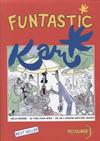
A Thousand Acres
1 journaler for this copy...
My goodness, this was a depressing book!
Rage, emptiness & cosmic irony; but with an unexpected focus, 22 May 2005
By Dr. Kenneth W. Douglas "drkennydouglas" (Glasgow) - See all my reviews
(TOP 1000 REVIEWER) (REAL NAME)
Jane Smiley's darkly awesome Pulitzer Prizewinner has lost none of its impact fourteen years on from its initial publication in 1991. Her re-telling of the King Lear story has all the rage, emptiness and cosmic irony of the Shakespearean original, but it is Smiley's crucial change of focus that makes the book such an overwhelming experience. For the tragedy here is not that of Lear himself, the father who reluctantly relinquishes his power; but rather belongs to the three daughters who suddenly find themselves dealing with the fall-out of years of domestic tyranny and abuse. The Goneril and Regan figures, the two eldest daughters who cast their father out into the storm and collude in depriving their younger sister of her rightful inheritance, are (kind of) the Good Guys here. Smiley has a long, cold look at the original King Lear story, and tells us that if Goneril and Regan saw fit to treat their father and their sister in this way, well, maybe they had their reasons. And terrible reasons they must have been.
The book is narrated by Ginny, eldest daughter of successful farmer Larry Cook, who owns one of the largest farms in his county, the regal Thousand Acres of the title. Ostensibly motivated by an urge to cheat the government out of death duties on his farm, he suddenly and unexpectedly offers each of his three daughters a third share in the farm. His youngest daughter Caroline, wary of his true motivation and of the darker undercurrents in the family dynamic, isn't keen on the idea and promptly gets cut out completely: Larry divides the farm between the two older girls Ginny & Rose. They are to farm the land with their husbands' help. However, Larry himself, aided and abetted by his wily clown of a neighbour Harold Clark, starts to behave increasingly oddly, stirring up bad feeling in the neighbourhood against Ginny and Rose. When Harold's charismatic younger son Jess returns from Canada, and Caroline pushes her father into a lawsuit to try to retrieve his farm, the stage is clearly set for tragedy - and tragedy is what we get.
Smiley's aim here is primarily to give a voice to the sort of people who are never usually allowed the luxury of centre-stage soliloquies to explain their actions and motives: in particular, there is a subtle but definite post-feminist slant to her tale. Downtrodden and embittered Ginny is the perfect choice as narrator: Smiley gives her a voice of uncommon poetry, perhaps as some sort of compensation for her irredeemably blighted life. The fierce and egotistical Rose is equally finely done, and neither Ginny nor Rose ever really lose the reader's sympathy even as their actions become more and more extreme. On the other hand, the melodramatic ranting of the disinherited Larry Cook comes to seem more and more irrelevant, and unlike Shakespeare's Lear, Smiley never allows Larry to become a sympathetic character. He may be a monster who has lost his poison, but he remains a monster. Although virtually everyone in the tale ends up empty-handed at the end, and there is no public accounting for past crimes, there is a feeling that in some way, justice has been done. As one of the older sisters sums it up near the end of the book: "All I have is the knowledge that I saw! That I saw without being afraid and without turning away, and that I didn't forgive the unforgivable. Forgiveness is a reflex for when you can't stand what you know. I resisted that reflex. That's my sole, solitary, lonely accomplishment."
Although this is a pretty dark read, it's a surprisingly exhilarating one too. Partly, this is the exhilaration in watching something getting smashed up that richly deserves to be smashed. But there is a lot more to it than that: Smiley creates characters of rare emotional complexity, and her use of language and metaphor is always beautiful. At the start of the book, Ginny muses over the fact that Larry's farm consists mainly of reclaimed marshland: there is a lost sea lurking just beneath the surface of the prairie. When Smiley strips back the ostensibly ordered lives of her farming family to show us the murky depths lurking there, it ultimately feels like a liberating experience.
Rage, emptiness & cosmic irony; but with an unexpected focus, 22 May 2005
By Dr. Kenneth W. Douglas "drkennydouglas" (Glasgow) - See all my reviews
(TOP 1000 REVIEWER) (REAL NAME)
Jane Smiley's darkly awesome Pulitzer Prizewinner has lost none of its impact fourteen years on from its initial publication in 1991. Her re-telling of the King Lear story has all the rage, emptiness and cosmic irony of the Shakespearean original, but it is Smiley's crucial change of focus that makes the book such an overwhelming experience. For the tragedy here is not that of Lear himself, the father who reluctantly relinquishes his power; but rather belongs to the three daughters who suddenly find themselves dealing with the fall-out of years of domestic tyranny and abuse. The Goneril and Regan figures, the two eldest daughters who cast their father out into the storm and collude in depriving their younger sister of her rightful inheritance, are (kind of) the Good Guys here. Smiley has a long, cold look at the original King Lear story, and tells us that if Goneril and Regan saw fit to treat their father and their sister in this way, well, maybe they had their reasons. And terrible reasons they must have been.
The book is narrated by Ginny, eldest daughter of successful farmer Larry Cook, who owns one of the largest farms in his county, the regal Thousand Acres of the title. Ostensibly motivated by an urge to cheat the government out of death duties on his farm, he suddenly and unexpectedly offers each of his three daughters a third share in the farm. His youngest daughter Caroline, wary of his true motivation and of the darker undercurrents in the family dynamic, isn't keen on the idea and promptly gets cut out completely: Larry divides the farm between the two older girls Ginny & Rose. They are to farm the land with their husbands' help. However, Larry himself, aided and abetted by his wily clown of a neighbour Harold Clark, starts to behave increasingly oddly, stirring up bad feeling in the neighbourhood against Ginny and Rose. When Harold's charismatic younger son Jess returns from Canada, and Caroline pushes her father into a lawsuit to try to retrieve his farm, the stage is clearly set for tragedy - and tragedy is what we get.
Smiley's aim here is primarily to give a voice to the sort of people who are never usually allowed the luxury of centre-stage soliloquies to explain their actions and motives: in particular, there is a subtle but definite post-feminist slant to her tale. Downtrodden and embittered Ginny is the perfect choice as narrator: Smiley gives her a voice of uncommon poetry, perhaps as some sort of compensation for her irredeemably blighted life. The fierce and egotistical Rose is equally finely done, and neither Ginny nor Rose ever really lose the reader's sympathy even as their actions become more and more extreme. On the other hand, the melodramatic ranting of the disinherited Larry Cook comes to seem more and more irrelevant, and unlike Shakespeare's Lear, Smiley never allows Larry to become a sympathetic character. He may be a monster who has lost his poison, but he remains a monster. Although virtually everyone in the tale ends up empty-handed at the end, and there is no public accounting for past crimes, there is a feeling that in some way, justice has been done. As one of the older sisters sums it up near the end of the book: "All I have is the knowledge that I saw! That I saw without being afraid and without turning away, and that I didn't forgive the unforgivable. Forgiveness is a reflex for when you can't stand what you know. I resisted that reflex. That's my sole, solitary, lonely accomplishment."
Although this is a pretty dark read, it's a surprisingly exhilarating one too. Partly, this is the exhilaration in watching something getting smashed up that richly deserves to be smashed. But there is a lot more to it than that: Smiley creates characters of rare emotional complexity, and her use of language and metaphor is always beautiful. At the start of the book, Ginny muses over the fact that Larry's farm consists mainly of reclaimed marshland: there is a lost sea lurking just beneath the surface of the prairie. When Smiley strips back the ostensibly ordered lives of her farming family to show us the murky depths lurking there, it ultimately feels like a liberating experience.










